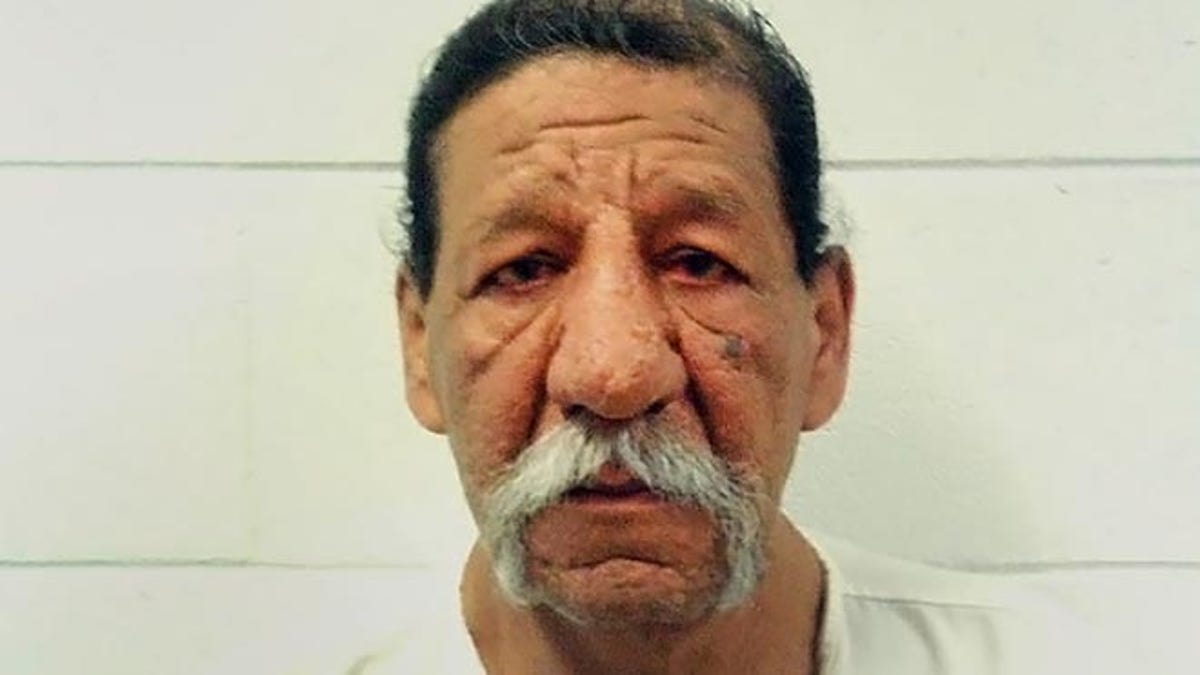
This image provided by the Utah Department of Corrections shows inmate Ramon C. Estrada, the prison inmate who died of an apparent heart attack related to renal failure after a dialysis provider didn't show up for a scheduled treatment for two days in a row, according to a prison official, Tuesday, April 7, 2015. (AP Photo/Utah Department of Corrections)
SALT LAKE CITY (AP) – Utah's governor called for answers in the death of an inmate whose dialysis providers failed to show up for treatment.
A few hours after the governor's statement, the corrections department said that inmates have complained before about dialysis providers not showing up for appointments.
Gov. Gary Herbert's office called the situation tragic.
"It is unacceptable the inmates did not receive the medical care they needed when they needed it," Herbert spokesman Marty Carpenter said in a statement. "The governor has called for a full investigation by the Dept. of Corrections Law Enforcement Bureau, so we can fully understand what went wrong, who was responsible and determine the appropriate actions to make sure it never happens again."
Earlier Wednesday, Herbert told KSL Radio that inmate's death is "hard to comprehend."
"I would expect even the inmate themself would say, 'I'm supposed to have a treatment. Where is the guy? Why is he not here?' " Herbert said.
Tony Yapias, who directs the advocacy group Proyecto Latino De Utah, said he has called the governor's office to ask for a full investigation. Yapias told The Associated Press it is an issue of concern to his group if a Latino dies as a result of inadequate medical attention or supervision.
The nonprofit Disability Law Center and Americans Civil Liberties Union of Utah said Wednesday called for changes and accountability at the prison to avoid a similar incident.
The ACLU may consider a lawsuit in the incident, but it must find out first if there was deliberate indifference in failing to give the inmates dialysis, said ACLU Utah Legal Director John Mejia.
A medical examiner will autopsy Estrada's body, but it appeared he died Sunday of an apparent heart attack related to kidney failure, the Utah Department of Corrections said.
Officials are still trying to figure out if anyone tried to contact the missing dialysis providers and when they might have done so, department spokeswoman Brooke Adams said Wednesday.
Adams said some staff members were aware the technicians did not show up, but the department is still investigating what action, if any, they took and why. "There was an obvious breakdown in communication," she said in an email.
Kathy Wilets, a spokeswoman for the University of Utah's health care system, said the system has provided dialysis services and other medical services to the prison for about 14 years
Technicians with Sandy-based South Valley Dialysis, a University of Utah medical clinic, were scheduled to arrive at the prison Friday and Saturday did not show up. South Valley is one of 17 dialysis clinics the hospital system operates in Utah, Idaho, and Nevada.
A phone number for the clinic was disconnected Wednesday. A message left at a number listed for the director of the hospital's dialysis program was not returned Wednesday afternoon.
Technicians with the South Valley clinic have been traveling to the prison in the Salt Lake City suburb of Draper to treat inmates for about seven years.
Dr. Richard Garden, the prison's medical director, told the Deseret News in 2008 that the prison switched to the on-site hemodialysis because it saved money and was safer for the public than driving inmates to the clinic several times a week.
The prison made the switch after an inmate escaped and fatally shot a prison guard in 2007 while being escorted to a doctor's appointment.
Garden had been put on leave while the department investigates, Adams said. "Given the magnitude of this situation, that was appropriate to have him on leave while we try to get to the bottom of what happened here and where the communication failures were and what happened," she said.
Estrada had been in prison since August 2005 on a rape conviction, Adams said. He was scheduled to be paroled on April 21.
Estrada was from Mexico and believed to have been in the country illegally, Adams said. He would have been turned over to the U.S. Marshals Service when his sentence was complete, she said.
Randall W. Richards, a lawyer who represented Estrada in 2005, did not return messages seeking comment Tuesday and Wednesday. It was unclear if Estrada had an attorney at the time of his death.
Six other male inmates had been waiting for dialysis treatment and were taken to a hospital for evaluation. Four of them were treated and returned to their cells Tuesday, Adams said.
Adams did not have details about how long the four admitted to the hospital went without dialysis treatment. The other inmates' identities were being withheld for privacy reasons, she said.
